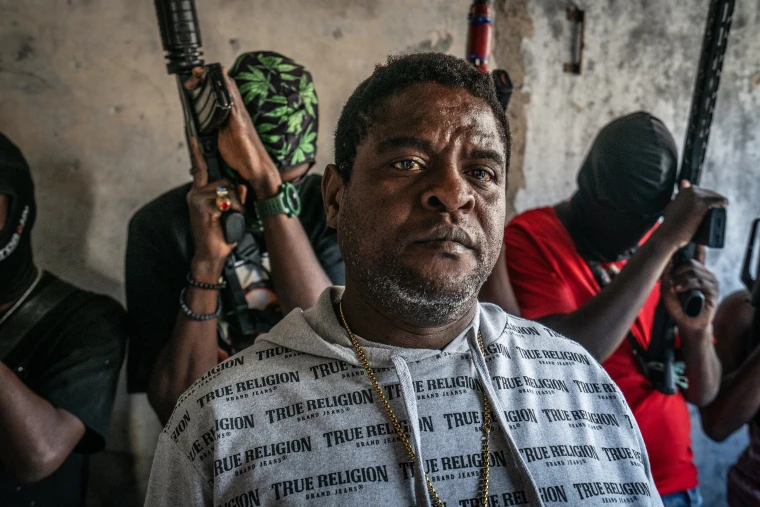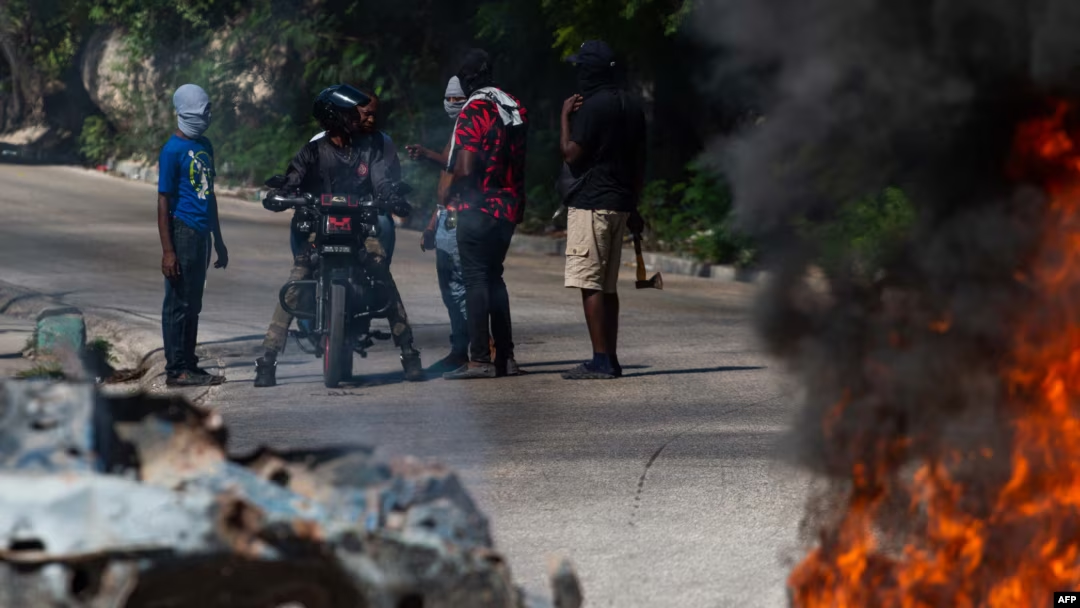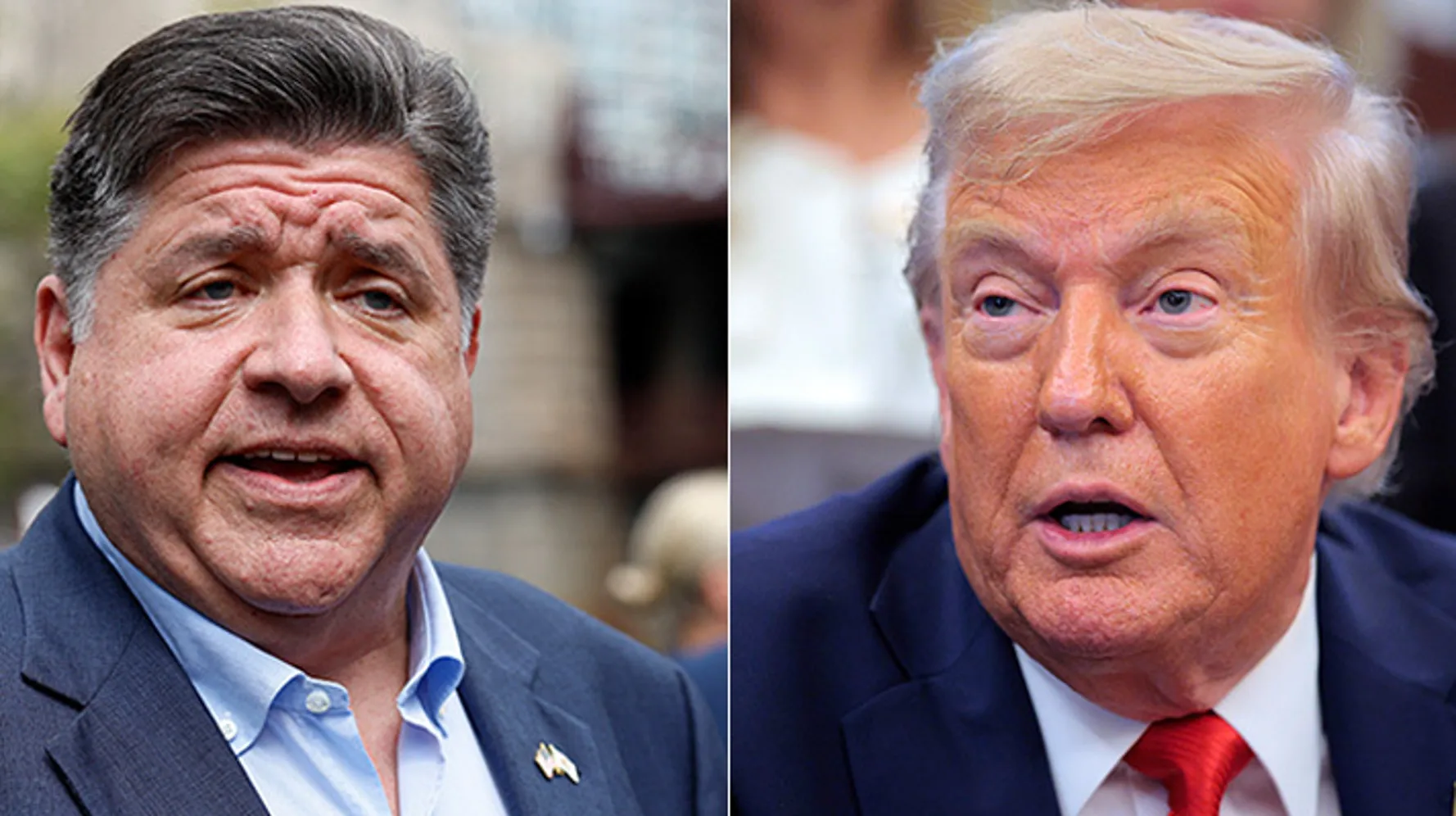Haiti stands at a crossroads, grappling with escalating violence and the growing dominance of armed gangs. Among the most notorious of these leaders is Jimmy Chérizier, known as “Barbecue.” A former police officer turned gang leader, Barbecue now heads the G9 Family and Allies, a coalition of gangs that wields immense power in Port-au-Prince and beyond. As Haiti’s government seeks to restore law and order, it has issued a stark ultimatum to Barbecue: surrender peacefully or face the full force of national and international intervention.
This article explores the rise of Barbecue, the current state of Haiti’s law enforcement and political stability, and the implications of the government’s ultimatum for the country’s future.
Barbecue’s Rise to Infamy
Jimmy Chérizier earned the moniker “Barbecue” during his time as a police officer, reportedly due to his mother’s work as a street food vendor. However, his reputation darkened considerably after allegations of his involvement in brutal massacres during his tenure on the police force. Following his dismissal, Barbecue emerged as a key player in Haiti’s underworld, using his knowledge of law enforcement tactics to outmaneuver authorities and consolidate power.
Barbecue now leads the G9 Family and Allies, a confederation of gangs that controls significant portions of Port-au-Prince. The group has been accused of heinous crimes, including extortion, kidnapping, and murder. The gang’s influence has grown so powerful that it often dictates the movement of goods and people in areas under its control.
The G9’s Grip on Haiti
The G9 coalition, under Barbecue’s leadership, has crippled Haiti’s already fragile economy. By blockading roads, ports, and fuel depots, the gang has exacerbated the nation’s humanitarian crisis. Essential supplies, including food, fuel, and medical equipment, have become scarce, leaving millions of Haitians in dire conditions.
Barbecue has portrayed himself as a revolutionary figure, claiming that his actions are aimed at dismantling Haiti’s corrupt elite. However, critics argue that his rhetoric masks a more sinister agenda, as his gang’s activities have deepened the suffering of ordinary citizens.
The Government’s Ultimatum
In recent months, Haiti’s government, under the leadership of Prime Minister Ariel Henry, has ramped up efforts to combat gang violence. The ultimatum issued to Barbecue—surrender or face force—marks a significant escalation in the government’s approach.
National and International Pressure
Haiti’s government faces mounting pressure from its citizens and the international community to restore order. The country has seen waves of protests against gang violence, with demonstrators demanding action to end the reign of terror imposed by groups like the G9.
Internationally, the United Nations and regional bodies such as CARICOM have called for urgent measures to address Haiti’s security crisis. Canada and the United States have imposed sanctions on Barbecue and other gang leaders, freezing assets and restricting their movements.
Multinational Security Assistance
Recognizing Haiti’s limited capacity to tackle its security challenges, the UN has approved a Kenya-led multinational security force to assist Haitian authorities. The deployment of foreign forces, however, has sparked debate among Haitians, with some welcoming the support and others fearing a repeat of past controversies linked to international interventions.
Challenges to Enforcement
While the ultimatum signals a strong stance by Haiti’s government, enforcing it is fraught with challenges.
Limited Law Enforcement Resources
Haiti’s National Police (PNH) is severely underfunded and understaffed, with fewer than 10,000 active officers for a population of over 11 million. Many officers are ill-equipped to confront heavily armed gangs, which often possess superior firepower.
Barbecue has capitalized on these weaknesses, using his network to infiltrate law enforcement and government institutions. Any attempt to arrest or neutralize him could provoke a violent backlash, endangering both police officers and civilians.
Civilian Casualties and Humanitarian Concerns
The prospect of a military-style operation against Barbecue raises concerns about potential civilian casualties. Gangs often embed themselves within densely populated neighborhoods, using residents as human shields. A forceful crackdown could exacerbate Haiti’s humanitarian crisis, displacing thousands and further straining limited resources.
Barbecue’s Counter-Moves
Barbecue is unlikely to surrender without resistance. In response to the ultimatum, he has threatened to escalate violence, including targeting critical infrastructure and staging public demonstrations of power. Such actions could plunge the capital into further chaos, undermining the government’s efforts to restore stability.
The Broader Implications
The government’s ultimatum to Barbecue is about more than just one gang leader; it represents a pivotal moment in Haiti’s struggle to reclaim control from criminal organizations.
Rebuilding Trust in Institutions
For years, Haiti’s institutions have been plagued by corruption, mismanagement, and a lack of accountability. Successfully apprehending or neutralizing Barbecue could signal a turning point, demonstrating the government’s commitment to restoring law and order. However, failure to act decisively could further erode public trust in the state’s ability to govern.
Economic Recovery
Gang violence has crippled Haiti’s economy, disrupting supply chains and deterring investment. Addressing the security crisis is essential for fostering economic recovery, creating jobs, and improving living conditions for ordinary Haitians.
A Test for International Support
The ultimatum also tests the effectiveness of international support for Haiti. The Kenya-led multinational force, set to deploy in the coming months, will play a critical role in bolstering Haiti’s security forces. However, its success will depend on careful coordination with local authorities and a focus on long-term capacity building rather than short-term fixes.
The Path Forward
Addressing Haiti’s security crisis requires a multifaceted approach that goes beyond targeting gang leaders like Barbecue.
Strengthening Law Enforcement
Haiti must invest in its police force, providing officers with better training, equipment, and resources. This includes tackling corruption within the ranks to ensure that law enforcement agencies can operate independently and effectively.
Engaging Communities
Community engagement is vital for breaking the cycle of gang violence. Programs that provide education, job opportunities, and social services can help deter young people from joining gangs and foster a sense of hope in vulnerable communities.
Political Stability
Haiti’s security challenges are intertwined with its political instability. Resolving long-standing disputes among political factions and ensuring free, fair elections are critical steps toward creating a government that can effectively address the nation’s needs.
Conclusion
The ultimatum issued to Jimmy Chérizier, known as Barbecue, marks a critical juncture in Haiti’s battle against gang violence. While the path forward is fraught with challenges, it also presents an opportunity for the government to demonstrate its commitment to restoring order and improving the lives of its citizens.
As the world watches, Haiti must navigate this complex situation with courage, strategy, and compassion, ensuring that efforts to combat gang violence pave the way for a brighter future. The stakes are high, but with the right combination of local leadership and international support, Haiti can overcome its current crisis and chart a new course toward stability and prosperity.




